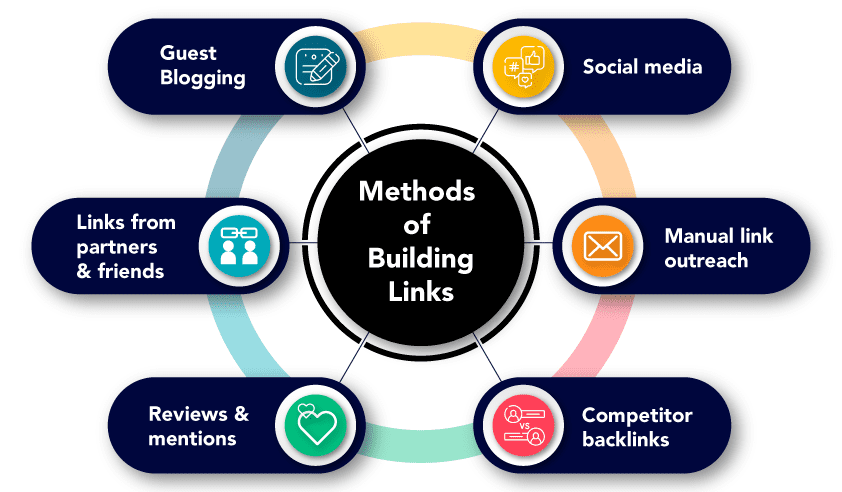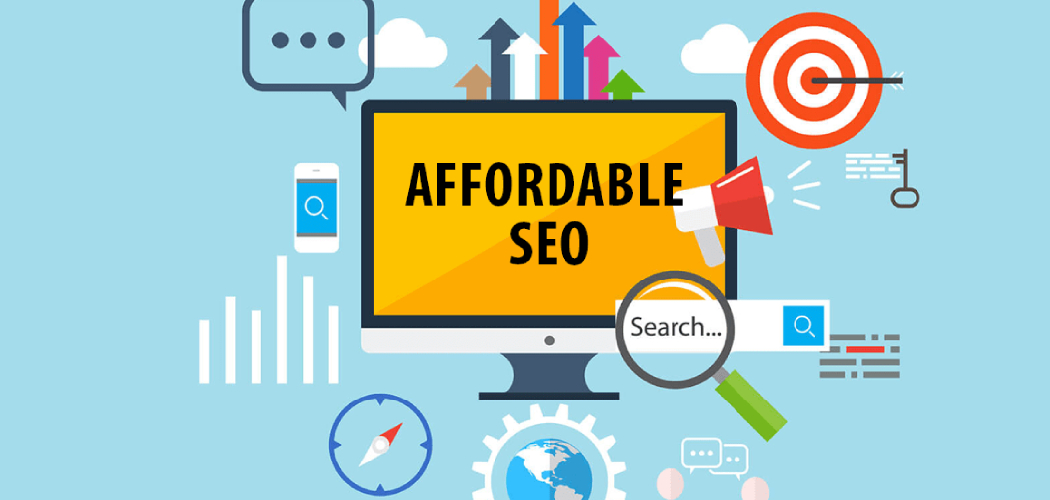Introduction
Are you looking to climb the search engine rankings and grow your online presence? While optimizing your website’s content is important, what you do off your site matters just as much. A complete search engine optimization plan involves more than just keywords. Choosing the right off page SEO services is a crucial part of a successful SEO strategy, helping you build authority and trust with both search engines and potential customers. Let’s explore how to find the perfect services for your business.
Understanding Off Page SEO Services
Off-page SEO services are all the actions taken away from your website to improve its position in search rankings. These efforts signal to search engines that your site is trustworthy, authoritative, and relevant. This often involves earning quality backlinks from other reputable websites.
By investing in these services, you build a strong digital footprint that enhances credibility. This external validation is key to climbing higher in search results and staying competitive. Below, we’ll look at what these services include and how they directly benefit you.
What Are Off Page SEO Services?
So, what exactly are off-page SEO services? Think of them as your online public relations team. They focus on activities that happen outside the code and content of your own website. The primary goal is to show a search engine like Google that your site is a credible and valuable resource that others trust.
These services help your website rank higher by building its authority and reputation across the web. When other reputable sites link to you, it acts as a vote of confidence. This process includes a wide range of external optimization activities, from link building to social media signals.
Ultimately, a strong off-page search engine optimization strategy drives more organic traffic to your site. By establishing your website as an authority in its niche, you improve its visibility, encouraging more users to click on your links in search results.
Key Benefits for Your Website’s Rankings
Investing in a robust off-page SEO plan brings numerous advantages that directly impact your search rankings. These external endorsements help algorithms and users alike see your website as reliable and authoritative, leading to better visibility.
When other sites vouch for your content, your site’s credibility grows. This social proof builds confidence in your brand even before someone visits your website. The key benefits of this process include:
- Improved Search Rankings: High-quality external signals are a major ranking factor.
- Increased Brand Awareness: Your business gets seen by new audiences on different platforms.
- More Organic Traffic: Higher rankings and greater visibility naturally lead to more visitors.
- Enhanced Trust and Credibility: Positive mentions and backlinks build your reputation.
Techniques like digital PR, guest posting, and influencer collaborations are highly effective right now. They not only build links but also expand your brand’s reach, leading to a significant boost in your placement on search engine results pages.
The Role of Authority, Backlinks, and Brand Signals
Authority, backlinks, and brand signals are the three pillars that support a successful off-page SEO campaign. Authority, often measured by metrics like Domain Authority, predicts how well your website will rank. Off-page SEO services build this authority by securing endorsements from other trusted sites.
The most powerful of these endorsements are quality backlinks. These are links from other websites to yours. Search engines view these links as votes of confidence, signaling that your content is valuable. The more high-quality, relevant links you have, the more authoritative your site appears.
Brand signals, such as mentions of your business name online (even without a link), also contribute. These brand mentions, consistent citations, and positive reviews all act as trust indicators. Together, these elements prove to search engines that your website is a legitimate and respected entity, deserving of a higher rank.
Core Pillars of Effective Off Page SEO
To build a winning off-page SEO strategy, you need to focus on its core pillars. These foundational elements work together to boost your site’s credibility and visibility. The main components are link building, brand mentions, content marketing, and social media engagement.
Each of these plays a vital role in signaling to search engines that your site is trustworthy. By acquiring links from authoritative websites and creating a buzz around your brand, you can significantly improve your search engine rankings. Let’s look at these pillars more closely.
Link Building Strategies and Best Practices
Link building remains a cornerstone of off-page SEO, but the focus must be on quality, not quantity. Acquiring hyperlinks from authoritative and reputable websites is essential for signaling trustworthiness to search engines and improving your rankings.
Some of the most effective link building techniques involve creating value for others. This could mean guest blogging on relevant sites in your industry or using the broken link building method. This is where you find broken links on another site and offer your own content as a replacement. These strategies help you earn valuable backlinks and drive referral traffic.
To maximize your efforts, follow these best practices:
- Focus on earning links from sites relevant to your niche.
- Create valuable content that others naturally want to link to.
- Vary your anchor text to look natural to search engines.
- Reach out to reputable websites for guest posting opportunities.
Social Media Engagement for Off Page SEO
While social media shares may not directly impact rankings in the same way backlinks do, social media engagement plays a significant, indirect role in off-page SEO. Active participation on social platforms boosts your brand’s visibility, which can lead to more brand mentions and, eventually, backlinks.
Engaging on platforms like Reddit, Quora, and other niche forums helps establish your expertise. By providing thoughtful answers and participating in discussions, you can build your online reputation and drive traffic back to your site. Search engines recognize this high-quality engagement as a signal of credibility.
Building a strong online presence on social media helps amplify your content. When your content is shared widely, it reaches new audiences. This increased exposure raises the chances of your content being discovered by bloggers, journalists, and other creators who might link to it from their own websites.
Online Reputation Management and Reviews
Your online reputation is a powerful off-page SEO asset. Positive reviews and a strong brand image build trust with both potential customers and search engines. Managing what people say about your business online is a critical component of building credibility.
Encouraging satisfied customers to leave positive reviews on platforms like Google and Yelp directly supports your SEO efforts. Search engines use online reviews as a signal of your business’s trustworthiness, which can influence your local search rankings. Responding promptly and professionally to all customer reviews, both good and bad, shows that you value customer feedback.
This proactive approach to managing your online reputation helps sway potential customers and strengthens your digital footprint. An ethical off-page SEO service will focus on genuinely earning positive reviews rather than using fake or manipulative tactics, which can harm your business in the long run.
Key Off Page SEO Secrets Every Beginner Should Know
If you’re just starting with off-page SEO, it can feel overwhelming. However, a few key secrets can help you navigate the process and make smart decisions. The most important thing to remember is that quality and authenticity are everything.
Focusing on creating valuable content and building genuine relationships will always deliver better results than taking shortcuts. Understanding the difference between ethical and risky practices is crucial for long-term success. Here are some essentials to guide your off-page SEO services and boost your SEO performance.
Ethical vs. Regular Off Page SEO Services
Choosing an off-page SEO provider requires understanding the difference between ethical and regular (often risky) services. Ethical SEO, also known as “white-hat” SEO, focuses on building sustainable authority through legitimate, value-driven strategies.
These services prioritize earning backlinks and mentions naturally by creating high-quality content and building real relationships. In contrast, some services might use “black-hat” tactics like buying low-quality links or using spammy techniques. While these might offer a short-term boost, they often lead to penalties from search engines, harming your search results in the long run.
An ethical SEO provider will be transparent about their methods. Key characteristics include:
- A focus on creating excellent, quality content.
- Building links from relevant and authoritative websites.
- Transparency in reporting, often using tools like Google Search Console.
- A long-term strategy for sustainable growth.
Common Pitfalls to Avoid in Off Page SEO
When you’re new to off-page SEO, it’s easy to make mistakes that can hinder your progress or even hurt your rankings. One of the most common pitfalls is focusing on the quantity of links instead of their quality. A few links from reputable sites are far more valuable than hundreds of links from spammy ones.
Another mistake is neglecting your existing backlink profile. You should periodically check for any broken link pointing to your site and redirect it. Also, ignoring unlinked brand mentions is a missed opportunity. You can often reach out and ask for those mentions to be converted into valuable backlinks.
To ensure your link building efforts are effective, here are some pitfalls to avoid:
- Buying links: This is against Google’s guidelines and can lead to penalties.
- Getting links from irrelevant sites: Links should come from websites in your niche.
- Over-optimizing anchor text: Using the exact same keyword for every link looks unnatural.
- Ignoring broken links: This creates a poor user experience and wastes link equity.
Building Domain Authority the Right Way
Building domain authority is a long-term game that requires patience and a strategic approach. Your goal is to establish your website as a trusted source of information in your industry. This is achieved by consistently earning high-quality backlinks from authoritative websites.
Content marketing is one of the most effective ways to build authority. By creating valuable, insightful, and shareable content—like data-driven reports, comprehensive guides, or engaging videos—you give other relevant websites a reason to link to you. This approach helps you earn backlinks naturally rather than having to ask for them.
The key is to focus on creating content that serves your audience and positions you as an expert. When other authoritative websites in your field link to your content, they are transferring some of their authority to you. Over time, this process significantly boosts your domain authority and improves your ability to rank for competitive keywords.
Off Page SEO Techniques That Work in 2024-2025
The world of digital marketing is always changing, and your off-page SEO strategy needs to adapt to stay effective. While the fundamentals remain the same, certain techniques are proving to be particularly powerful as we look toward 2024 and 2025.
The focus is shifting even more toward creating genuine value and building authentic relationships. Instead of just chasing links, modern strategies involve creating new content that earns media attention and collaborating with influential voices in your industry. Let’s explore some of these forward-thinking techniques.
Guest Posting and Outreach Campaigns
Guest posting continues to be a highly effective off-page SEO tactic when done correctly. The strategy involves writing and publishing an article on someone else’s website or blog. This allows you to share your expertise with a new audience while earning a valuable backlink to your own site.
The key to successful guest blogging is to focus on reputable, relevant sites within your niche. Instead of just trying to get a link, aim to provide genuinely valuable content that benefits the host site’s readers. This relationship-building approach makes your outreach campaigns much more successful.
To find opportunities, you can use Google search operators like “your industry + write for us” or “your industry + guest post.” By creating engaging and informative articles, you not only get a backlink but also build your brand’s authority and drive targeted traffic back to your website.
Influencer Collaborations and Digital PR
One of the biggest trends in modern off-page SEO is the convergence of SEO with public relations and influencer marketing. Digital PR focuses on getting your brand featured in online publications, not just for the backlink, but for the brand awareness and credibility it brings. This can be achieved by creating newsworthy content, like studies or reports, that journalists want to cover.
Similarly, influencer marketing leverages the reach of popular creators in your industry. By collaborating with influencers, you can introduce your brand to their established audience, earning social mentions and backlinks from their platforms. These endorsements build trust and can drive significant referral traffic.
These strategies are powerful because they generate authentic buzz around your brand. Instead of just building links, you’re building relationships and a reputation. As part of your digital marketing efforts, both digital PR and influencer collaborations are key to staying competitive and enhancing your brand awareness.
Local Citations and Directory Listings
For businesses that serve a specific geographic area, local citations are a critical part of off-page SEO. A citation is any online mention of your business’s name, address, and phone number (NAP). Consistency is key here—your NAP information must be identical across all platforms.
These listings on directories like Yelp, the Better Business Bureau, and your Google Business Profile (formerly Google My Business) validate your business’s existence and location to search engines. Inconsistent information can confuse both search engines and customers, negatively impacting your local search rankings.
Utilizing a listing management tool can help ensure your business name, address, and phone number are accurate everywhere. This consistency is a strong signal to Google, helping you rank higher in local search results and on Google Maps.
| Citation Element | Importance for Local SEO |
| Business Name | Must be the exact, official name of your business. |
| Address | Should be your physical location, written consistently everywhere. |
| Phone Number | Use a consistent local phone number across all listings. |
| Website URL | Should link back to your official website homepage. |
Choosing Between Local and National Off Page SEO Agencies
When it’s time to hire help, you’ll face a big decision: should you work with a local agency or a national provider? The right choice depends entirely on your business goals, target audience, and marketing strategy. Each option comes with its own set of strengths and weaknesses.
A local SEO agency might have deep knowledge of your specific market, while a national SEO firm could offer a broader range of services and resources. Understanding these differences is the first step in finding the perfect partner to execute your off-page SEO plan.
Pros and Cons of Local Off Page SEO Agencies
Choosing a local off-page SEO agency can be a great move, especially for businesses with a physical storefront or a defined service area. These agencies are experts in the nuances of local SEO and often have established relationships within the local community.
They understand the specific directories, publications, and influencers that matter in your city. This expertise can be invaluable for building relevant local citations, managing your Google Business Profile, and generating positive reviews from local customers.
However, a local agency might have a smaller team and fewer resources than a national provider. Their experience may also be limited to local campaigns. Here’s a quick summary:
- Pros: Deep understanding of the local market, strong community connections, and expertise in local citations.
- Cons: Potentially fewer resources, may lack experience with national campaigns.
- Best for: Brick-and-mortar stores, service-area businesses, and anyone prioritizing local search rankings.
Benefits of Working with a National Provider
If your business operates on a larger scale or is purely online, a national SEO provider might be the better fit. These agencies typically have larger teams, more extensive resources, and experience working with a diverse range of industries and business models.
A national provider excels at building a wider reach. They often have established relationships with major publications, high-authority websites, and influencers across the country. This can be a huge advantage for securing powerful backlinks and widespread brand mentions that boost your overall domain authority.
Their broader perspective on digital marketing means they can integrate your off-page SEO into a larger national strategy. While they may not have the same granular knowledge of your local market, their ability to execute large-scale campaigns can deliver significant results for businesses looking to achieve national SEO dominance.
How to Decide What’s Right for Your Business
So, how do you make the final call? The decision between a local and national provider comes down to aligning the agency’s strengths with your specific business needs. Start by clearly defining your marketing strategy and what you hope to achieve with off-page SEO.
Are you trying to drive foot traffic to a local store, or are you an e-commerce brand looking to reach customers nationwide? Your target audience is the most important factor. If your customers are local, a local agency is likely the best choice. If they are spread out, a national firm’s wider reach is more beneficial.
Consider these factors to guide your decision:
- Your Business Goals: Do you need more local customers or a broader national presence?
- Your Target Audience: Where are the people you’re trying to reach located?
- Your Budget: National agencies can sometimes be more expensive.
- Your Overall SEO Strategy: Does your strategy prioritize local signals or broad authority building in Google search?
Beginner’s Guide to Selecting Off Page SEO Services
Now that you understand what off-page SEO is and why it matters, how do you actually choose the right provider? Selecting the best off-page SEO services is a process that requires careful research and clear communication. You want to find a partner who understands your goals and has a proven track record of success.
This guide will walk you through the essential steps, from defining your goals to asking the right questions. Following this process will help you find a trustworthy agency that can elevate your digital marketing and connect you with more potential customers.
Essentials You’ll Need to Get Started
Before you even start looking for an agency, it’s helpful to have a few things in place. Having a basic understanding of your own website and goals will make the selection process much smoother and more effective.
First, you should have a foundational grasp of your on-page and technical SEO. This means your meta tags are in order, your site speed is reasonable, and there are no major technical issues hindering your performance. You should also have Google Search Console set up, as this tool provides invaluable data about your site’s health and backlink profile.

Having these essentials ready will help you have more productive conversations with potential agencies:
- Clear Business Goals: Know what you want to achieve (e.g., more traffic, higher rankings for specific terms).
- Basic Keyword Research: Have an idea of the search terms your target audience uses.
- Access to Google Search Console: This is non-negotiable for monitoring off-page efforts.
- A Solid Website Foundation: Ensure your on-page and technical SEO are handled.
Step-by-Step Guide to Choosing the Best Off Page SEO Agency
Finding the right agency to handle your off-page SEO services is a critical business decision. A great partner can significantly boost your online visibility, while a poor one can waste your budget or even harm your site’s reputation. This step-by-step guide will help you navigate the process with confidence.
The goal is to move beyond flashy sales pitches and identify an agency that uses ethical, effective strategies to get results. This involves doing your homework, asking tough questions, and checking for proof of their past successes. By following a structured approach, you can increase your chances of finding a partner who is a great fit for your brand.
Following these steps will help you evaluate your options systematically and choose an agency that will contribute positively to your SEO efforts, leading to more satisfied customers and stronger connections with relevant websites.
Step 1: Define Your SEO Goals and Budget
The very first step in choosing an SEO agency is to look inward. Before you can evaluate anyone else, you need to know exactly what you want to accomplish. A vague goal like “get more traffic” isn’t enough. Your SEO strategy should be built on specific, measurable objectives.
Do you want to rank on the first page for a few highly competitive search terms? Are you trying to increase organic traffic by 25% in the next year? Or is your main goal to build brand authority and attract a specific target audience? Clearly defining these goals will help you find an agency that specializes in the areas that matter most to you.
At the same time, you need to establish a realistic budget. Off-page SEO is an investment, and prices can vary widely. Knowing what you can afford to spend will help you narrow down your options and have more productive conversations with potential partners.
Step 2: Research and Compare Agency Expertise
Once you know your goals and budget, it’s time to start researching potential agencies. Look for firms that have experience in your industry or with businesses of a similar size. An agency that specializes in e-commerce might not be the best fit for a local law firm, and vice versa.
Explore their websites, blogs, and social media presence. Do they seem like industry experts? Are they transparent about their methods and do they appear to follow best practices? A reputable agency will often share their knowledge freely, demonstrating their expertise in digital marketing.
When comparing agencies, consider the following:
- Industry Specialization: Do they understand the unique challenges of your niche?
- Team Experience: Look into the background of their key team members.
- Company Culture and Values: Do their values align with your brand’s?
- Range of Services: Do they offer a comprehensive approach to off-page SEO?
Step 3: Review Case Studies and Client Testimonials
The proof is in the results. Any reputable agency should be able to provide case studies and client testimonials that showcase their past work. These documents offer valuable insights into the agency’s process, the types of results they achieve, and how they work with clients.
When reviewing case studies, look for details. A good case study will outline the client’s initial problem, the strategy the agency implemented, and the specific, measurable results they delivered. Pay attention to whether they have worked with businesses similar to yours.
Don’t just rely on the testimonials posted on their website. Look for reviews on third-party reputable websites like Clutch or Google. You can even ask the agency for references and speak directly with some of their current or former clients to get an unbiased opinion. Hearing directly about their experience can be incredibly revealing.
Step 4: Ask About Reporting, Tools, and Communication
Before you sign a contract, it’s crucial to understand how the agency operates. Your final round of questions should focus on transparency, communication, and the tools they use to measure success.
Ask them how they will report on progress. A good agency will provide regular, easy-to-understand reporting that ties its efforts back to your goals. They should be able to show you data from tools like Google Search Console and other professional SEO tools like Ahrefs or SEMrush. Be wary of any agency that is secretive about its methods or metrics.
Clear communication is key to a successful partnership. Make sure you understand how and when you will communicate.
- What specific metrics will be included in the reporting?
- Which SEO tools do they use for analysis and tracking?
- How often will you have meetings or calls?
- Who will be your main point of contact?
Conclusion
In conclusion, selecting the right off-page SEO services can significantly impact your website’s visibility and ranking. By understanding the key components such as link building strategies, social media engagement, and the importance of reputation management, you can make informed decisions that align with your business goals. Remember to define your SEO objectives, research potential agencies, and assess their expertise to ensure a perfect match for your needs. With the right off-page SEO partner by your side, you’ll be well on your way to enhancing your online presence. If you’re ready to take the next step, get in touch today to explore tailored off-page SEO solutions that work for you!
Frequently Asked Questions
What should I expect from a genuine and spam-free off page SEO service?
You should expect a focus on earning quality backlinks from reputable websites through transparent methods like content creation and digital PR. A genuine service will prioritize building your online reputation for long-term growth in search results and will be open about their SEO efforts, avoiding any spammy shortcuts.
Which off page SEO tools are recommended for beginners?
For beginners, Google Search Console and Google Alerts are essential and free. To dive deeper into digital marketing, industry experts recommend user-friendly paid SEO tools like Ahrefs or SEMrush for backlink analysis, competitor insights, and keyword research. These platforms provide a comprehensive view of your off-page health.
How do off page SEO services build authority and backlinks for websites?
They build domain authority by creating valuable content that other sites want to reference, then conducting outreach to earn quality backlinks. This includes guest posting, digital PR, and converting brand name mentions into links. This process drives referral traffic and signals trust to search engines, boosting your site’s credibility.
What are the latest trends in off page SEO services for 2025?
The latest trends focus on authenticity and value. This includes sophisticated digital marketing tactics like influencer marketing, digital PR campaigns that generate media buzz, and creating highly valuable content that earns links naturally. There is also a growing emphasis on managing online reviews and user-generated content.






